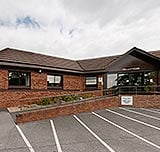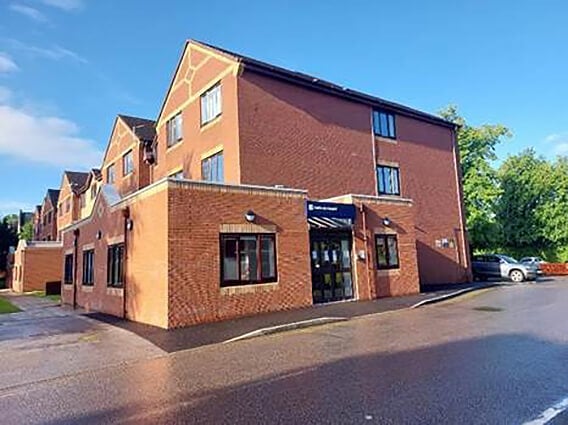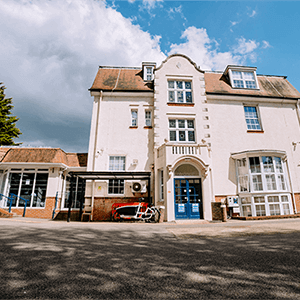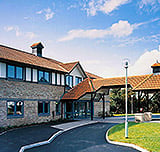
Hip arthroscopy is a minimally invasive procedure used to diagnose and treat a range of hip problems. Often performed as a day-case surgery, it offers faster recovery and fewer complications than traditional open surgery.
If you’ve been recommended for a hip arthroscopy, this page will guide you through everything you need to know, from what the procedure involves to recovery, costs, and whether it’s the right option compared to a full hip replacement.
Hip arthroscopy is a type of minimally invasive surgery used to both diagnose and treat conditions affecting the hip joint. It involves making small incisions (cuts) through which a surgeon inserts a thin tube with a camera, known as an arthroscope, to view the inside of the joint in real time.
Using this technique, the surgeon can clearly see damage within the joint and use specialised instruments to carry out repairs, all without the need for large surgical cuts. This means patients typically experience shorter hip arthroscopy recovery times, less pain after surgery, and a quicker return to normal activities.
If you have persistent hip pain or stiffness that hasn’t improved with non-surgical treatments, such as physiotherapy, rest, pain relief medication, or steroid injections, hip arthroscopy may be recommended to help diagnose and treat the underlying issue.
Hip arthroscopies can be used to treat a range of hip problems, including:
Hip arthroscopy is typically recommended for patients who are experiencing ongoing hip pain, stiffness, or limited mobility that hasn’t improved with non-surgical treatments such as rest, physiotherapy, or medication.
You may be a candidate for hip arthroscopy if:
Hip arthroscopy is often most suitable for younger adults who do not yet need a full hip replacement. In cases where the hip joint is too damaged, such as with advanced arthritis, a total hip replacement may be more appropriate.
If you’re unsure whether hip arthroscopy vs total hip replacement is right for you, your orthopaedic surgeon at Ramsay Health Care will guide you through your options based on your specific condition and lifestyle needs.
The cost of your hip arthroscopy will depend on your specific condition, procedure complexity, and post-operative care needs.
At Ramsay Health Care, we offer flexible and transparent options to help you manage the cost of hip arthroscopy, whether you’re self-funding or using private health insurance.
If you’re paying for your treatment yourself, we offer:
Total Care package - A single, all-inclusive one-off payment at a pre-agreed price that covers all hospital fees, consultant charges, and follow-up care. This gives you complete peace of mind with no hidden costs.
Finance options - Spread the cost of your hip arthroscopy over time with our interest-free and low-interest payment plans.
If you have private medical insurance, your hip arthroscopy may be covered in full or in part. We recommend:
To get a personalised quote or to discuss your options, our team at Ramsay Health Care is here to help. We’ll guide you through the process to ensure you’re fully informed about hip arthroscopy costs and what’s included in your treatment package.
Before your hip arthroscopy, you’ll have a thorough consultation with one of our specialist orthopaedic surgeons. They will review your medical history, examine your hip, and may request imaging tests (such as an X-ray or MRI scan) to confirm your diagnosis and plan your treatment.
Our team will advise you on what preparations you should make before your hip arthroscopy, but typically this involves:
We’ll provide you with full pre-operative instructions before you come to us. Read more about what to expect during your stay with Ramsay Health Care.
A hip arthroscopy is typically performed as a day-case procedure under general anaesthetic. The operation usually lasts between 30 and 90 minutes, depending on what needs to be done inside the joint.
Here’s what you can expect during the procedure:
Hip arthroscopy is usually an outpatient procedure, meaning you can go home on the same day, once you’ve recovered from the anaesthetic and are safe to leave.
Immediately after surgery:
You’ll go home with a clear recovery plan, including instructions for managing pain, caring for your wounds, and gradually increasing your activity.
It’s normal to experience:
Our team will provide a detailed, personalised recovery plan, including advice on:
We’ll also schedule your follow-up appointments to monitor your recovery and progress.
Hip arthroscopy recovery time varies from person to person and will depend on your condition, the type of treatment performed, your overall health, and how closely you follow your rehabilitation plan.
For the first few weeks, you’ll focus on recovering from your surgery.
As well as resting, you’ll need to stand and move regularly to help with your healing. You’ll use crutches or another walking aid and will only walk for short periods.
You’ll likely have some pain and swelling, which can be managed with pain medication and icing.
Driving during this time is typically not recommended, especially if you’re taking prescription medication.
You’ll gradually stop using crutches and will begin to walk unaided and will be able to stand for longer periods.
You should be able to gradually increase your activity levels, moving from light walking to stationary biking and performing the recommended physiotherapy exercises.
You should be able to return to driving during this period.
You may be back at work if you have a job that’s reasonably stationary and doesn’t involve a lot of standing or walking.
Your strength, stability, and range of motion will continue to improve. You’ll be able to focus on exercises to strengthen key muscles, like your glutes and your hip flexors.
You should be able to engage in more strenuous exercise, including swimming and using an elliptical machine.
Most patients can return to low-impact sports or higher levels of activity.
You should begin to experience stronger, more stable joint function with reduced pain.
If you work in a physical job, you may be able to return to work with adjustments, such as more frequent breaks or lighter duties.
Full healing can take up to a year, particularly for soft tissue and bone to fully recover.
You can continue building strength and may return to high-impact sports with medical approval.
Everyone recovers at their own pace — your Ramsay team will guide you through a personalised recovery plan based on your surgery and lifestyle.
While hip arthroscopy is generally considered a safe and low-risk procedure, all surgeries carry the potential for complications. At Ramsay Health Care, we take every precaution to minimise these risks through expert care, modern techniques, and high-quality facilities.
Most complications are rare, but may include:
Your surgeon will discuss these risks with you in detail before your procedure and answer any questions you may have. Our team will also provide post-operative care advice to help prevent complications and support your safe recovery.
Hip arthroscopy offers many benefits for patients who are experiencing persistent hip pain or limited mobility, particularly when conservative treatments haven’t been effective.
Benefits of hip arthroscopy surgery include:
At Ramsay Health Care, we offer expert hip arthroscopy surgery performed by highly experienced consultant orthopaedic surgeons. With state-of-the-art facilities across our network of private hospitals, you’ll receive first-class care close to home.
Ramsay is a leading provider of private orthopaedic surgery in the UK. We’re known for:
From your initial consultation to your final physiotherapy session, we’re here to ensure you feel supported every step of the way.
Book an appointment today and take the next step toward reduced pain, better mobility, and improved quality of life.
While hip arthroscopy is minimally invasive, it is still a surgical procedure requiring general anaesthetic and rehabilitation, so it’s considered a significant intervention, though not ‘major’ in the traditional sense.
Hip arthroscopy recovery time varies depending on the procedure and the patient. Most people will need to use crutches for 1 to 6 weeks and can return to regular daily activities within around 12 weeks. However, full recovery — including returning to sports or physically demanding work — can take between 6 and 12 months.
After your hip arthroscopy, you should avoid excessive bending at the hip, prolonged sitting or standing, high-impact activities such as running or jumping, and any movements that place stress on the joint.
Your Ramsay care team will provide a detailed rehabilitation plan tailored to your needs, including guidance on safe movement, physiotherapy, and recovery best practices.
Hip arthroscopy is commonly performed on adults aged between 20 and 50. The surgery is performed when there’s a good chance that arthroscopy can fix any issues without more significant surgery, like a hip replacement.
For many patients, labral tear surgery performed via hip arthroscopy can significantly reduce pain, improve mobility, and prevent long-term joint damage, especially when conservative treatments haven’t worked.
Gentle walking is usually encouraged after hip arthroscopy to support circulation, prevent blood clots, and promote healing. You may begin walking with crutches on the day of surgery or the following day.
Patients are typically advised to sleep on their back with a pillow under their knees, or on the non-operated side with a pillow between their legs. You should avoid any sleeping positions that put pressure on the operated hip.
Some pain and discomfort are expected after hip arthroscopy, particularly in the first few days. However, this can usually be managed with prescribed medication, rest, and icing.
Hip arthroscopy may not be suitable for patients with advanced arthritis, significant joint degeneration, or certain anatomical abnormalities. In these cases, a total hip replacement may be offered. Your Ramsay orthopaedic surgeon will assess your case and recommend the most effective treatment option.
Whether hip arthroscopy or total hip replacement is better depends on your condition, age, and lifestyle. Hip arthroscopy is minimally invasive and ideal for repairing specific issues in a healthy joint. Total hip replacement is more suitable for patients with severe arthritis or extensive joint damage. Your Ramsay consultant will help determine the best option based on your diagnosis and long-term goals.





















Alistair Strathern, MP for Hitchin visited Pinehill Hospital, part of Ramsay Health Care UK, to meet with staff, patients and doctors, and to learn more about the healthcare services provided to the local community by the hospital.
Springfield Hospital, part of Ramsay Health Care UK, has celebrated the installation of its second static MRI scanner during an official ceremony attended by Mayor Jannetta Sosin.
Euxton Hall Hospital, part of Ramsay Health Care UK, was delighted to welcome the Mayor and Mayoress for Chorley, Councillor Alistair Morwood and Mrs Jane Morwood, along with Paul Foster, MP for South Ribble, to officially unveil its newly refurbished ward.
The information, including but not limited to, text, graphics, images and other material, contained on this website is for educational purposes only and not intended to be a substitute for medical advice, diagnosis or treatment. Always seek the advice of your physician or other qualified health care provider with any questions you may have regarding a medical condition or treatment.
No warranty or guarantee is made that the information contained on this website is complete or accurate in every respect. The testimonials, statements, and opinions presented on our website are applicable to the individuals depicted. Results will vary and may not be representative of the experience of others. Prior patient results are only provided as examples of what may be achievable. Individual results will vary and no guarantee is stated or implied by any photo use or any statement on this website.
Ramsay is a trusted provider of plastic or reconstructive surgery treatments as a part of our wrap-around holistic patient care. Our personal, friendly and professional team are here to support you throughout to ensure the best possible care. All procedures we perform are clinically justified.
*Acceptance is subject to status. Terms and conditions apply. Ramsay Health Care UK Operations Limited is authorised and regulated by the Financial Conduct authority under FRN 702886. Ramsay Healthcare UK Operations is acting as a credit broker to Chrysalis Finance Limited.
Ramsay Health Care UK is not currently recruiting for any roles based outside of England. If you are interested in applying for a role with Ramsay Health Care UK, please note that all available positions are advertised exclusively on our official website: https://www.ramsayhealth.co.uk/careers. Be cautious of individuals or organisations that approach you directly for remotely-based roles. Always verify the authenticity of the job offer and be careful with whom you share your personal information. For more information and advice on employment fraud, please visit: https://www.ramsayhealth.co.uk/careers/recruitment-fraud